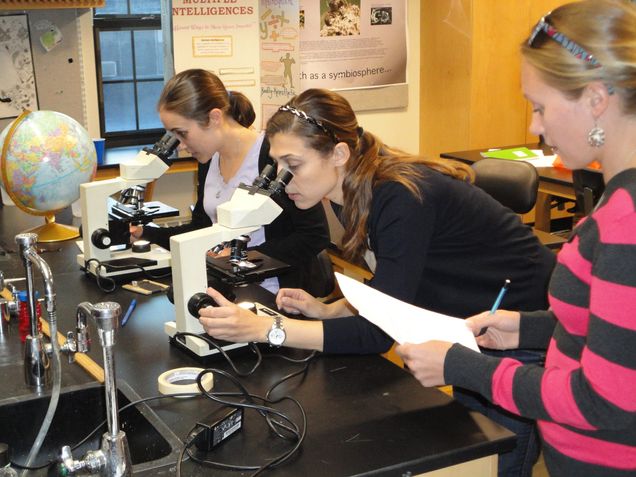Boston University’s Noyce Scholarship Program in Science
Requirements for Project PSUNS:
- Graduate students accepted into Boston University Project PSUNS must have an undergraduate or graduate degree in a physical science discipline or engineering.
- Career changers who are accepted into Project PSUNS must have an undergraduate or graduate degree in a physical science, engineering, or the equivalent career experience.
- Undergraduate Boston University students accepted into Project PSUNS must be in an undergraduate physical science or engineering major in their senior year.
- Noyce scholars must be United States citizens, nationals, or permanent resident aliens.
- Noyce scholars must commit to teach for two years in a high-need district upon successful completion of the teacher certification program.
Noyce Scholars receive:
- Graduate student Noyce scholars receive a full scholarship to Boston University’s Master of Arts in Teaching (MAT) degree program in science. Click here for more information on the MAT Degree Program.
- Undergraduate science Noyce scholars receive a 1/3 scholarship for their senior year.
- Career changers receive tuition support depending on the program that they choose. If they choose to go full-time in the MAT program, they receive full tuition. If they choose a part-time program that allows them to continue to work in their profession, then the extent of the Noyce tuition support varies from full to partial.
Noyce Scholars commit to:
- Teaching for two years in a high-need district upon successful completion of the undergraduate science Noyce program or successful completion of the MAT degree program.
Recipients of Noyce Scholarships will engage in the following activities:
1. Clinical Experiences in Schools under the Guidance of Highly Qualified Veteran Teachers
Noyce scholars have a range of field experiences that help them prepare to teach in high needs districts. All placements are in one of Boston University’s partner school districts under the supervision of veteran teachers who are committed to excellence in teaching and learning. Supervising teachers are school leaders in science who have professional licensure and have met rigorous standards.
2. Membership in a Science Learning Community
Boston University is proud of the strong collaboration that exists between various science departments and the science education department. Noyce scholars participate with undergraduate and graduate students, teachers, science educators and scientists in a rich STE community that comes together to do science and discuss the teaching of science. Activities include workshops where students link content and pedagogy as well as informal meetings and social events.
3. Preparation for High-Need Settings
To help Noyce scholars support a student population that is increasingly diverse in race and ethnicity, social class, immigrant status, and proficiency in English and other languages, they enroll in courses specifically designed to support teaching science in urban schools. Noyce scholars study issues such as student mobility, stereotypes, tracking, equity of opportunities, and minority achievement. School practices and reform strategies as well as the life of inner city youth are addressed through relevant readings and discussion. Scholars also enroll in a course focusing exclusively on teaching English language learners in order to prepare them to support English development in the science classroom.
4. Teaching Materials and Resources
After graduation, as new teachers Noyce scholars are provided funds to purchase books, teaching materials, and professional journal subscriptions to support their work in the classroom. Funding is provided for travel to attend conferences held by the National Science Teachers Association and seminars on science education.
5. Mentoring and Support
Once Noyce scholars are teaching, they return to campus for monthly “Noyce Teacher” seminars, which are held in the late afternoon or early evening. They are able to discuss with mentors and other Noyce Scholars pertinent issues relevant to first year teaching such as classroom management, lesson planning, and grading.


